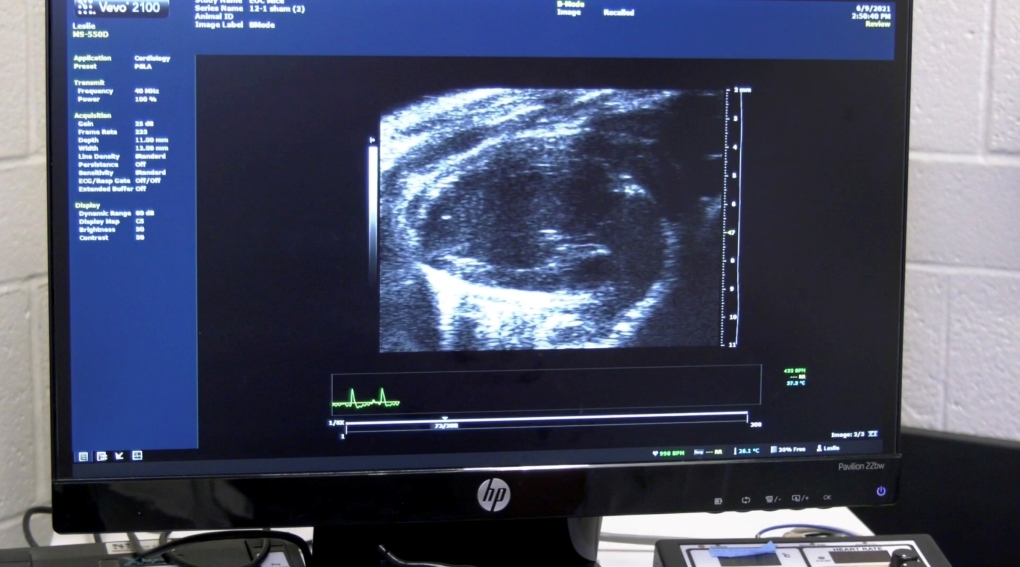Preventing heart failure and managing diabetes are the potential benefits of a new discovery by University of Guelph researchers.
In a study using mice, the scientists found that nitrate can improve heart health – and the reason why is linked to gut microbes.
“We used sodium nitrate in our study, but nitrate is found in green leafy vegetables like spinach and beets in particular,” said Graham Holloway, a professor in the university’s Department of Human Health and Nutritional Sciences.
Researchers studied the effects of the nitrate on mice eating a high-fat diet, and found the nutritional compound acts like a sort of shield, even in a state of obesity.
Mice in the study were fed almost exclusively butter for eight weeks, Holloway said.
“If they were consuming nitrate, they did not develop diabetes and they did not develop what’s called diastolic heart disease. So the hearts functioned a lot better and the bodies used sugar more precisely,” he explained.
 University of Guelph researchers are studying how nitrate might be used in the body to help prevent heart failure and manage diabetes. (Spencer Turcotte/CTV Kitchener)
University of Guelph researchers are studying how nitrate might be used in the body to help prevent heart failure and manage diabetes. (Spencer Turcotte/CTV Kitchener)
“What’s really cool with this research is, with the nitrate diet, we were actually able to improve how well the heart relaxes,” PhD candidate Leslie Ogilvie said.
To explain the effect, the team looked to the gut, linking the heart health benefits of nitrate to gastrointestinal microbes.
“The microbes in your gut are incredible little factories for biochemistry,” microbiology professor Emma Allen-Vercoe said. “This is just another example of one of the things they can do to improve your health by taking a dietary substrate — something that you’re eating — and changing it into a molecule or molecule that has benefits for your health.”
The tests also show improved control of glucose metabolism – a factor in diabetes.
The researchers say the next step is to examine the relationship between nitrate and heart health in humans.
“But our evidence would suggest dietary nitrate could be a beneficial intervention to improve cardiovascular health in a situation of obesity,” PhD candidate Heather Petrick said.